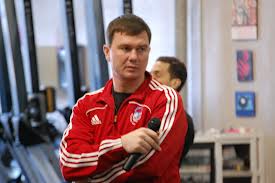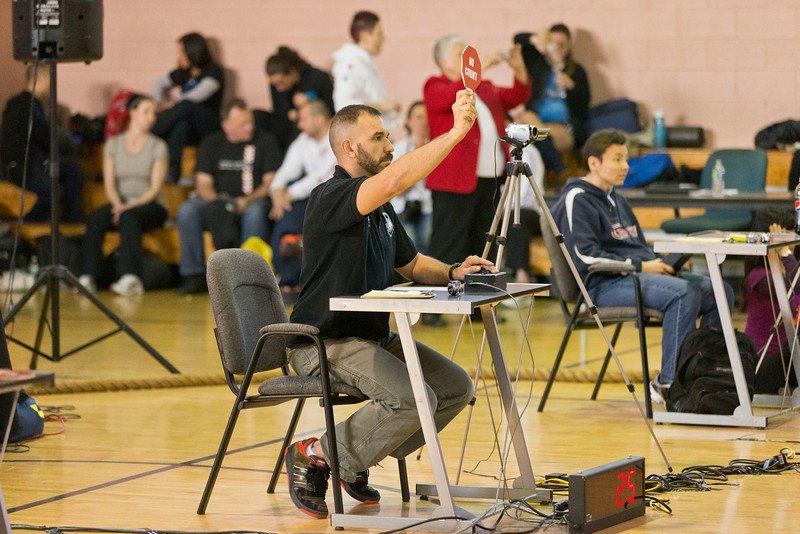So, the other evening I was talking to Coach Fedorenko, and we got onto the subject of judging. It’s a big subject, and I can’t hope to cover all the big guy’s thoughts in this one blog. He has plenty of experience in the field, of course, both on the receiving end as a professional lifter, and more recently as presiding judge at the Worlds.
WKC has exciting plans for the way ahead in judging, and we talked about this a little. Fedorenko explained why this project mattered to him: “At WKC we want to promote kettlebell lifting, and I see our main goal as promoting lifting as a healthy sport. When people perform good reps, everything is right for the body, and the lifter benefits from the full movement. We focus on the well-executed rep. We are not so interested in lifters going lightweight and high reps. For example, for Snatch we recommend no more than 18-20 rpm, and for Long Cycle we feel that 12rpm is enough. High reps per minute do not achieve more, they tend to produce poor technique. We look in competition for good reps, with time to achieve proper fixation. You may see in competitions run by other organisations that the emphasis is on fast reps, and fixation is overlooked. But we are seeking to promote health, fitness and sport, so 10 rpm gives plenty of time to demonstrate sound technique.”
So a judge has the task of counting reps, and deciding whether the lifter is achieving fixation. This won’t always be a popular role. The judge’s decision will be the final word every time, but occasionally there will be dissenters. Disputing the decision is always ill-advised. On entering a competition, at whatever level, the lifter accepts that the judge’s count is final, and that applies to any sport, any discipline. An athlete is expected to understand the universal truth: you join the meet, you acknowledge the meet’s set of rules
Fedorenko reminded me of Mike Tyson’s quote: “Everyone has a plan ’till they get punched in the mouth.” He explained: “As a competitor, you have a target of reps you want to achieve, but the day will not always go the way you plan. A good sportsman will cope with the disappointments, not retaliate towards the judge. A good judge will hold his silence during the sets, not entering into discussion with the athlete (or the athlete’s own coach), will confer only with his deputies and only uphold decisions which maintain the standards of his own organisation. It’s simple really.”
Eric Liford said this about No Counts at the end of last year: “No-Counts. We gave quite a bit out at Worlds this year. We have posted every set from Worlds on our Youtube Channel. Not only did we do this for the lifters to share, but we will use these real examples to train next year’s Judges better, and also make new Judges. While we feel this year’s competition was the best so far with judging, we still have a lot of work to do in this area. One of the main obstacles is getting the Judge to use their knowledge and power to give no-counts. No one wants to bring the bad news, but this is helping us all look good in the long term.”
With all this commitment to the highest of standards in judging, and plans to take training to a new level in 2013, it would seem that WKC wants to lead the way, not follow a trail. Bring it on!



